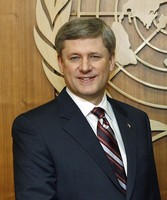When the U.S. approached eight countries with the idea to expand the Trans-Pacific Partnership (TPP), it did not invite its North American Free Trade Area (NAFTA) partners, Canada and Mexico, along.
The exclusion of the two countries from what is being touted as potentially the most important economic bloc in the Pacific Rim was deliberate. The TPP seeks to liberalize trade by completely removing tariffs and other trade barriers, while also strengthening measures to protect intellectual property, two moves that Canada particularly had resisted within NAFTA.
However, when the U.S., Australia, Malaysia, Peru and Vietnam join founding members Brunei, Chile, New Zealand and Singapore, the TPP will represent a huge market of about 650 million people and a combined GDP of more than $20 trillion.

